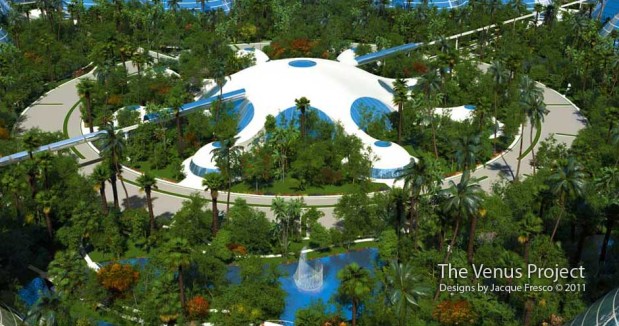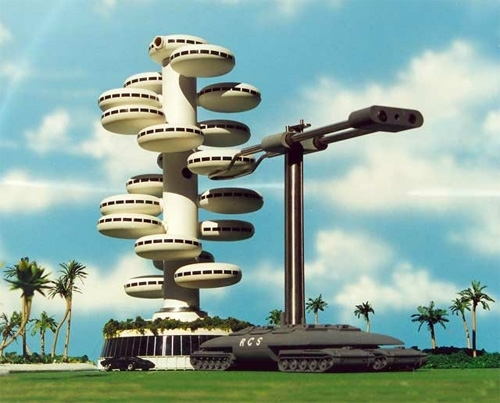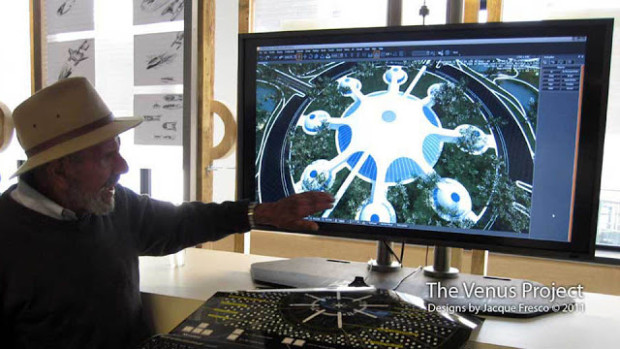| Online: | |
| Visits: | |
| Stories: |
The Venus Project: One World, No Government. Could It Work?
Architectural designer and futurist, Jacque Fresco, is considered an inspiration by many for his innovative ideas and his blueprint for a sustainable society and planet. It is known as the Venus Project. While some of his ideas are considered radical and far-fetched, we are now reaching a point in technology where it may be time for a reappraisal.
The Venus Project proposes an alternative vision of what the future can be if we apply what we already know in order to achieve a sustainable new world civilization. It calls for a straightforward redesign of our culture in which the age-old inadequacies of war, poverty, hunger, debt and unnecessary human suffering are viewed not only as avoidable, but as totally unacceptable. Anything less will result in a continuation of the same catalogue of problems inherent in today’s world. Today many people believe what is needed is a higher sense of ethical standards and the enactment of international laws to assure a sustainable global society.
Fresco’s idea advocates for a society that runs on socio-cooperation, and uses science and the advancement of technology in clean and efficient ways. He calls this system a “resource-based economy”, and it would involve reconstructing the entire planet’s infrastructure. The planet would need to work together as one, “eliminating the false borders that separate continents and countries and looking at our planet as an open trading highway system.”
Because our current system is based on mass consumerism, which promotes environmental neglect, we are not living in a sustainable society, and it’s only a matter of time before we drain the planet of its resources. Fresco suggests that the answer is to automate as much as possible in the shortest period of time. By doing so, we can use technology to produce and distribute resources for the entire world in a clean and efficient manner. In this way, technology can work for everyone.
Two common concerns at this point are whether or not there would be enough resources for everyone, and whether or not mass automation will have a negative effect on the job market. The first thing to take into consideration is that the Venus Project would terminate the need for a monetary system, thereby having no effect on the job market, and if we can get to a point where the level of production is high enough (which Fresco claims is more than possible), scarcity will no longer exist. The theory is that with most jobs automated, and resources in abundance, the average person will only have to work a couple hours a day, and they would have everything they could possibly need.
Fresco also suggests that computers can be used to benefit mankind by using a global intelligence network to oversee things such as the production and distribution of goods, and to ensure there would be no shortages or overruns of resources. “Decisions being made in this innovative society would be based around the needs of the people and the conservation of the planet, not corporate interests.” Our corporate-run society uses the monetary system to stress a need for vast resources that don’t have to be used—it promotes waste.
Fresco has numerous ideas for this new system, all of which are outlined in the documentary provided at the bottom of this page. From clean, renewable energy, to transportation, it seems Fresco has thought of nearly everything.







